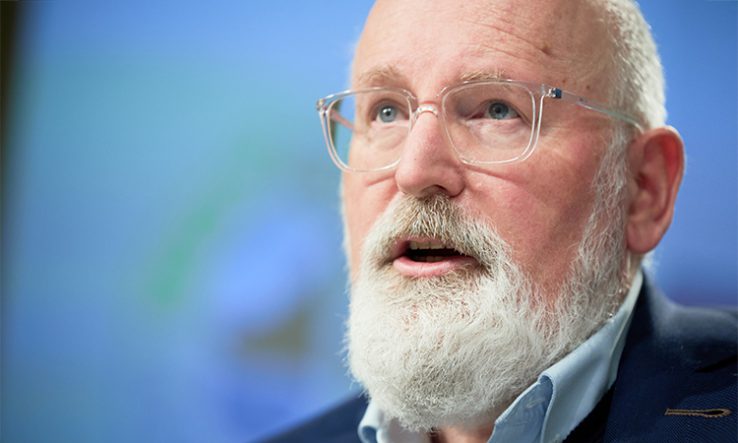
“Falsehoods” around environmental protection law debunked with help of 6,000 scientists, says Commission vice-president
Scientists have been thanked for helping to debunk “falsehoods” as MEPs narrowly backed EU legislation intended to help restore the natural environment.
The EU Nature Restoration Law, which will place restoration measures on 20 per cent of the EU’s land and sea by 2030 if adopted, was backed by the European Parliament on 12 July, with 336 MEPs in favour and 300 against.
Opposition from the European People’s Party political group had threatened to sink the proposed law. The EPP expressed concerns that the measures would harm food security by decreasing production and increasing prices.
But over 6,000 researchers from across Europe signed a letter expressing “deep concern” about the “unjustified argumentation” against the proposals.
Debunking falsehoods
On the day of the vote, European Commission executive vice-president Frans Timmermans (pictured), who belongs to the Socialists and Democrats political group, thanked scientists for helping to “debunk” the “falsehoods” and “manipulative way of presenting issues” on the law.
“Thank you to the 6,000 scientists who took the trouble to write a letter. Thank you to the more than 1,000 entrepreneurs who spoke out in favour of the Nature Restoration Law. I think they helped us get a majority in this Parliament because it led to people thinking about this and perhaps reconsidering their vote,” he said.
He also thanked non-governmental organisations and those who took to the streets in support of the proposal.
César Luena, an MEP from the Socialists and Democrats who led on the proposal, said the law “follows the scientific consensus and recommendations to restore Europe’s ecosystems”.
The Parliament will now negotiate with the Council of the EU member states to shape the final version of the law.
The EPP group said on social media that it was “disappointed” with the outcome of the vote as it fears the law “will be counterproductive and have significant social and economic consequences”.